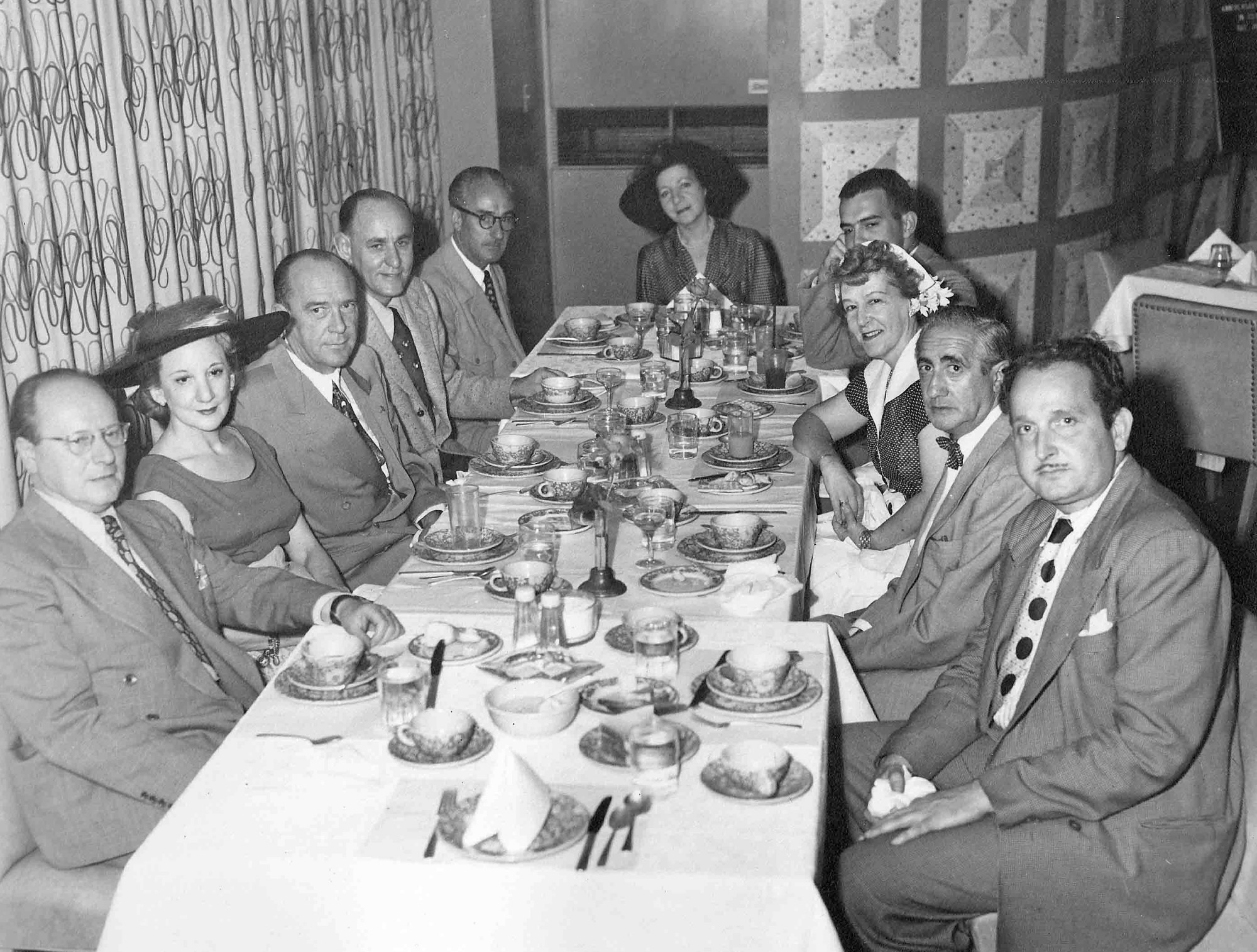
- Golden Globe Awards
1943: The Humble Beginnings

Marta Natalia Filomena Cisternas Holley, who later shortened her name to Marina Cisternas, was one of a small group of international correspondents covering Hollywood in the 1940s.
She was born into a traditional Chilean family, and her father was Chief Justice of the country for a time. But her interests and ambitions drew her toward show business. Upon moving to the United States, she became an actress, an author, the leading Spanish language columnist in Hollywood, and, in 1943, one of the 14 founding members of the Hollywood Foreign Correspondents Association (HFCA).
In addition to Cisternas, some of the other charter members were: Guy Austin, William Mooring, Olga Neville, Nora Laing, Frederick Porges, Jose Jasd, Henry Gris, Aura de Silva, and Ivy Wilson.
On October 20, 1943, the first election resulted in the selection of Lon Jones as president, William Mooring as vice president, Viola McDonald as treasurer, and Guy Austin as secretary.
In 1945, two years after the official start of the HFCA, Cisternas became the organization’s president. She is credited with helping design the first actual physical trophy the foreign journalists and their followers would award to celebrate excellence in film, the Golden Globes.
The chief motivation among these writers to unite was obvious: strength in unity. In their case, that meant more access to the source of their work, namely the actors and actresses who starred in films.
For Hollywood studios, meanwhile, it was a matter of simple economics. While a one-on-one interview with a star for one hour targeted a potential audience of only the interviewer’s outlet, a press conference for the same amount of time could deliver a multitude of reader contacts.
The year 1943 saw humble beginnings. But during the eight decades that followed, the Hollywood Foreign Correspondents Association morphed into the Hollywood Foreign Press Association, and the Golden Globes presentations grew from informal gatherings into truly global events. Today’s press conferences by the HFPA can create “media hits” in the hundreds of millions.
Meeting in the private homes of Cisternas and her U.K. colleague Wilson, the foreign journalists of the then-HFCA worked together, acutely aware of a world at war. Fellow charter member de Silva later wrote in her short history of the organization: “(We) adopted the motto ‘Unity Without Discrimination of Religion and Race,’ which has been a guiding spirit throughout the years.”

